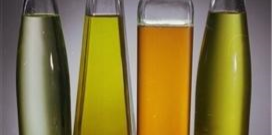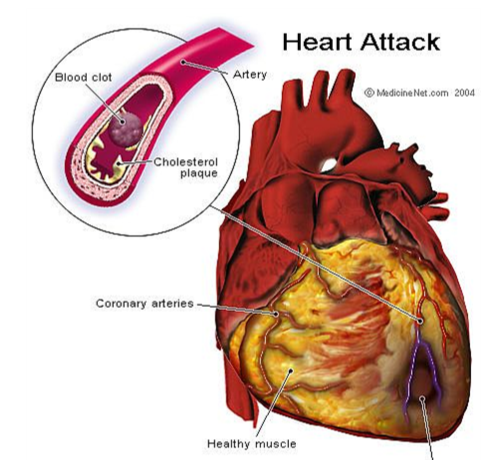Next to sugar, I think the worst foods you can put in your mouth are vegetable oils.

This is a hard thing for people to understand because we have been led to believe that vegetable oils are better than saturated fats, but nothing could be further from the truth. Remember that saturated fats are fats that come from animal sources (meat, butter), but you can also find them in coconut and palm oil. These fats are “saturated” with hydrogen molecules and that means they are stable and don’t change when heated (this is a good thing). A saturated fat also doesn’t react with other molecules (another good thing).
Unsaturated fats are the fats we extract from seeds (like canola, corn, sunflower…). Since they are not saturated, they are unstable. When we heat these unsaturated fats they tend to twist out of their natural configuration (and become what are called trans-fats – the world is starting to wake up to how bad trans fats are). Unsaturated fats are also very reactive with other molecules (including molecules in your body) which is why you should avoid them like they are poison. We are waking up to the health threats from these misshaped and twisted molecules. The problems with trans fats are many. To put it simply, your body does not know what to do with these molecules because they have been twisted out of shape. Trans-fats are associated with increased inflammation in your body, clogged arteries, and even weight gain.
Studies have shown that around 5% of any vegetable oil you buy contains trans fats (this is because the oils have to be heated when they are manufactured).
Don’t be fooled by “no trans fats” labels.
In the crazy world of food labeling, a food product can contain up to 2.2 grams of trans fat in every serving, and still claim “0%” on the label. If you want to avoid trans fats, make sure what you are eating doesn’t contain any vegetable oils.
Other Problems
The trans story is only the tip of the iceberg. Vegetable oils have many other problems. When you heat oils in order to extract them, you create all sorts of crazy Frankenstein-molecules. The worse among these chemicals are called cyclic hydrocarbons and oxyphytosterols. The damage these molecules do is far beyond the trouble that trans-fats cause. These molecules are bad because they lead to the formation of free radicals (the opposite of antioxidants). What is particularly damaging about these molecules is that they create what scientists call a free radical cascade. This means that they bounce around in your body damaging tissue and they also damage other molecules which in turn damage more molecules (like a cascade). They spend a long time in your body bouncing around, damaging all kinds of tissue before they finally burn out.
While you have probably spent a lifetime avoiding saturated fats, they are the fats that you want to be eating and they are not linked to heart disease as you might think. Saturated fats are not fragile (this means that they don’t change into trans fats on us) and it doesn’t take much heat to extract them. Lard, butter, palm oils, and coconut oils are you best choices for fats.
Olive oil is a good in-between oil. It has some saturated bonds, so is more stable than other oils; use it sparingly.















What’s your opinion on Avocado oil? Thanks
Julie,
There are not too many liquid oils I like (you read the post). Avocado oil is one that I approve of (along with olive oil).
Dr. Scott